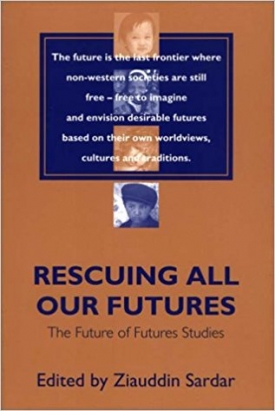
The future is the last frontier where non-western societies are still free – free to imagine and envision desirable futures based on their own worldviews, cultures and traditions.
Yet ‘futures studies’, this book argues, has abandoned its goal of exploring such diverse and alternative futures.
It is over-emphasis on forecasting and prediction, its over-preoccupation with technology and its neglect of non-western cultures and concerns have all transformed it into an instrument for the colonisation of the future. The future is being colonised by a single, dominant but myopic vision that is incapable of seeing outside the framework of western thought and action.
The authors whose essays appear in this book explore the critical question of whether the postmodern present – where distances shrink rapidly, spaces collapse, and nothing remains permanent – has grid-locked us into a single, monolithic future.
They ask how do we rescue all out futures? How can we bring multiculturalism and plurality to the heart of futures studies? Distinguished contributors from a variety of cultural and disciplinary backgrounds – Ashis Nandy, Eleonora Masini, Sohail Inayatallah, Graham May, Ivana Milojevic, Susantha Goonatilake, Steve Fuller, S P Udayakumar, Anne Jenkiins, Sean Cubitt, Jan Nederveen Pieterse, Richard Slaughter, Ted Fuller, Vinay Lal, Jerry Ravetz, Kirk W Junker, Morgen Witzel and Merryl Wyn Davies – tackle this question head on and point futures studies towards new decolonising directions.
This groundbreaking text will be essential reading for all those interested in helping shape more pluralistic and humane futures.
